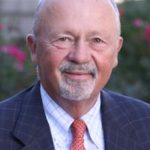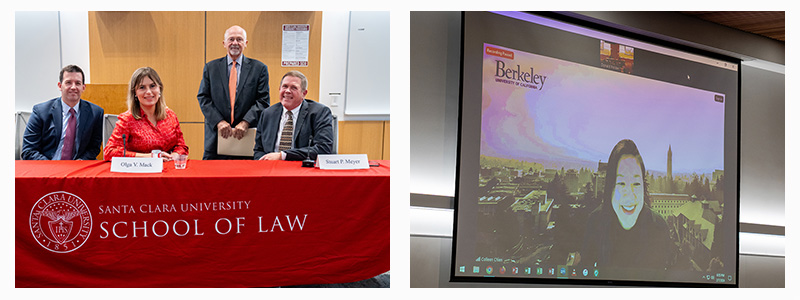 On Wednesday evening, distinguished alumni, students, faculty, and attendees gathered at Charney Hall for the 20th Annual Judge William Ingram Symposium. The event was sponsored by the Judge William Ingram Inn of Court, Santa Clara University School of Law, and the Heafey Institute for Trial Advocacy. This year’s topic of conversation centered on “Artificial Intelligence: Its Promises and Challenges for Lawyers and Legal Profession.” The Symposium featured a discussion by experts in law and technology on the great opportunities and effects of AI technology on the work of lawyers and judges as well as the potential misuse of AI in the work of lawyers, courts, and the profession.
On Wednesday evening, distinguished alumni, students, faculty, and attendees gathered at Charney Hall for the 20th Annual Judge William Ingram Symposium. The event was sponsored by the Judge William Ingram Inn of Court, Santa Clara University School of Law, and the Heafey Institute for Trial Advocacy. This year’s topic of conversation centered on “Artificial Intelligence: Its Promises and Challenges for Lawyers and Legal Profession.” The Symposium featured a discussion by experts in law and technology on the great opportunities and effects of AI technology on the work of lawyers and judges as well as the potential misuse of AI in the work of lawyers, courts, and the profession.
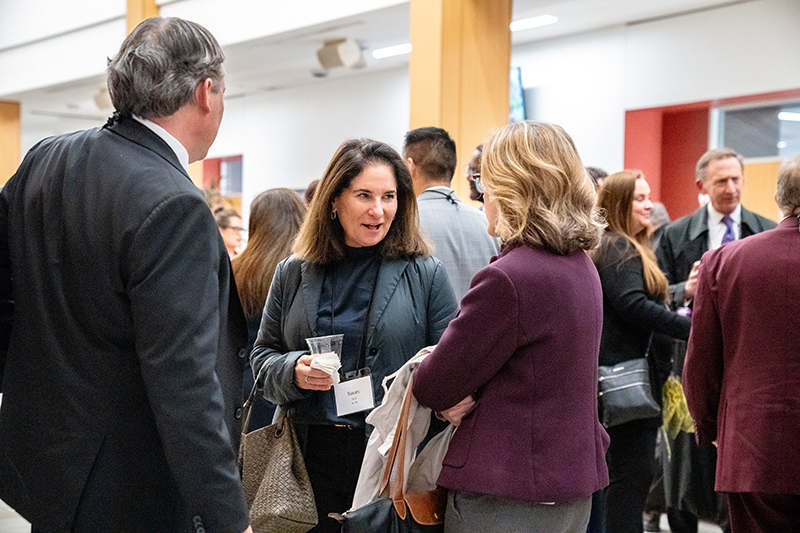 Following a reception in the Atrium, Don Polden, Dean Emeritus and Professor of Law at Santa Clara Law, and Jonathan Joannides ’16, Program Chair for the Ingram Inn and a privacy and cybersecurity associate in the Mountain View office of Fenwick & West LLP, offered words of welcome. Joannides introduced background on artificial intelligence (AI), noting two relevant subfields of AI that would be discussed at the Symposium: machine learning—the algorithmic interpretation of data—and generative AI—the generation of new content through learning patterns.
Following a reception in the Atrium, Don Polden, Dean Emeritus and Professor of Law at Santa Clara Law, and Jonathan Joannides ’16, Program Chair for the Ingram Inn and a privacy and cybersecurity associate in the Mountain View office of Fenwick & West LLP, offered words of welcome. Joannides introduced background on artificial intelligence (AI), noting two relevant subfields of AI that would be discussed at the Symposium: machine learning—the algorithmic interpretation of data—and generative AI—the generation of new content through learning patterns.
Joannides introduced the panelists of the 20th Annual Symposium:
Colleen Chien is a professor at UC Berkeley School of Law, where she researches intellectual property, artificial intelligence, and the criminal justice system. Chien is also a Faculty Co-Director of the Berkeley Center for Law and Technology, and for the past decade, has also had the honor of working part-time as a public servant in the Obama White House as a Senior Advisor on Intellectual Property and Innovation.
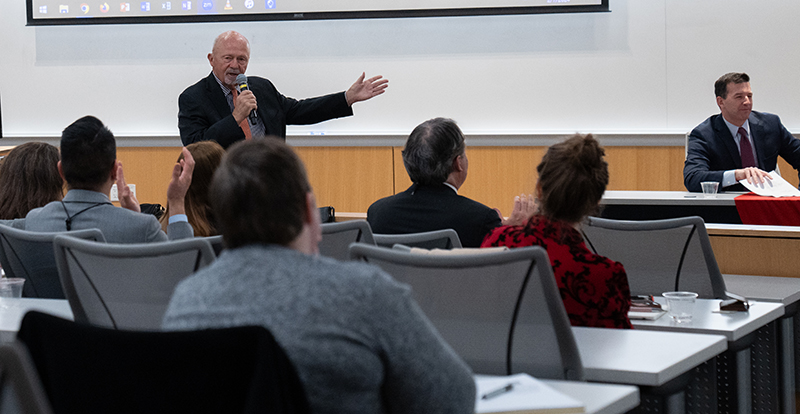 Olga V. Mack is a fellow at CodeX, the Stanford Center for Legal Informatics, and a Generative AI Editor at law.MIT. She is an award-winning general counsel, operations specialist, and tech startup advisor whose wisdom can be found in Above the Law, Forbes, Bloomberg Law, ACC Docket, law.MIT Computational Law Report, Newsweek, Venture Beat, and her podcast, Notes to My (Legal) Self.
Olga V. Mack is a fellow at CodeX, the Stanford Center for Legal Informatics, and a Generative AI Editor at law.MIT. She is an award-winning general counsel, operations specialist, and tech startup advisor whose wisdom can be found in Above the Law, Forbes, Bloomberg Law, ACC Docket, law.MIT Computational Law Report, Newsweek, Venture Beat, and her podcast, Notes to My (Legal) Self.
Stuart P. Meyer is a partner at Fenwick & West LLP and an intellectual property and technology lawyer. A graduate of Yale Law School, Meyer co-chairs Fenwick’s post-grant proceedings practice and is consistently recognized by Chambers USA as a top IP advocate.
During the discussion, the panelists shared their thoughts on various modern-day AI-related topics. “The complexity of [these] model[s] is such that we can’t really tell what’s happening,” Chien commented on machine-based and generative AI models. “We don’t actually know what’s happening inside the black box, so the training and memory needs to be relevant to the case that it’s used in.”
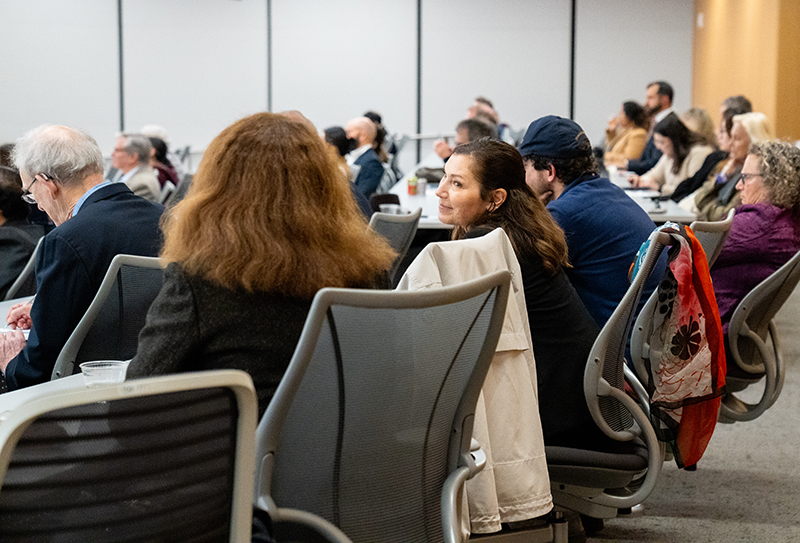 The conversation also highlighted the impact of AI on the legal profession. “Recordings in court sound real and that’s a problem,” Meyer noted. “Maybe the [visual] hands and expression aren’t quite right—but AI will get better and you won’t be able to tell the difference. We will have to become much more sophisticated to do audits on AI systems.”
The conversation also highlighted the impact of AI on the legal profession. “Recordings in court sound real and that’s a problem,” Meyer noted. “Maybe the [visual] hands and expression aren’t quite right—but AI will get better and you won’t be able to tell the difference. We will have to become much more sophisticated to do audits on AI systems.”
Mack likens the supervision of AI systems to a duty. “It’s not something you are born with; you have to have it actively taught,” she asserted. “How do you supervise AI as a lawyer? It’s like driving a crane: you need training and supervision to have a license before you can drive it. We need to teach people how to supervise people and machines.”
